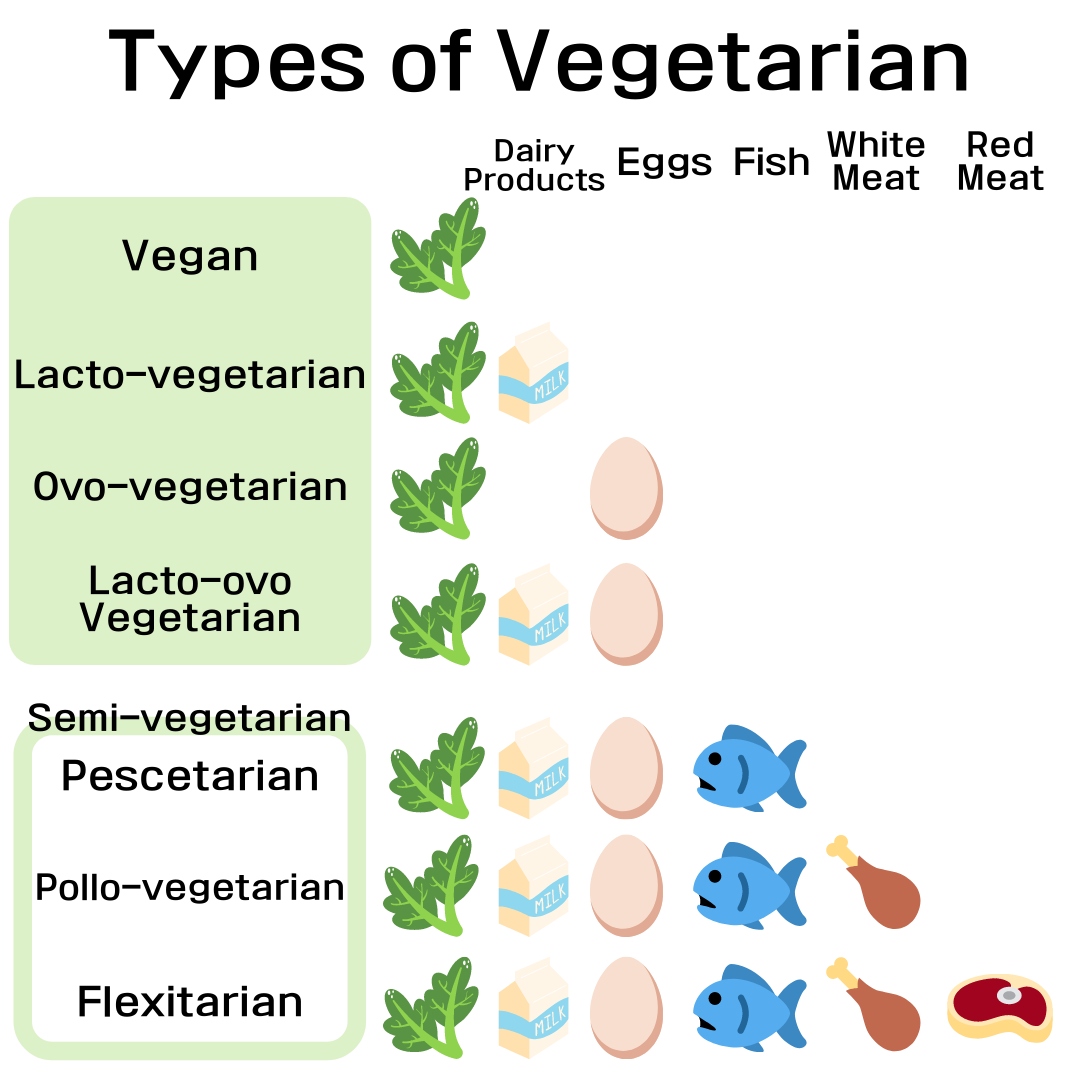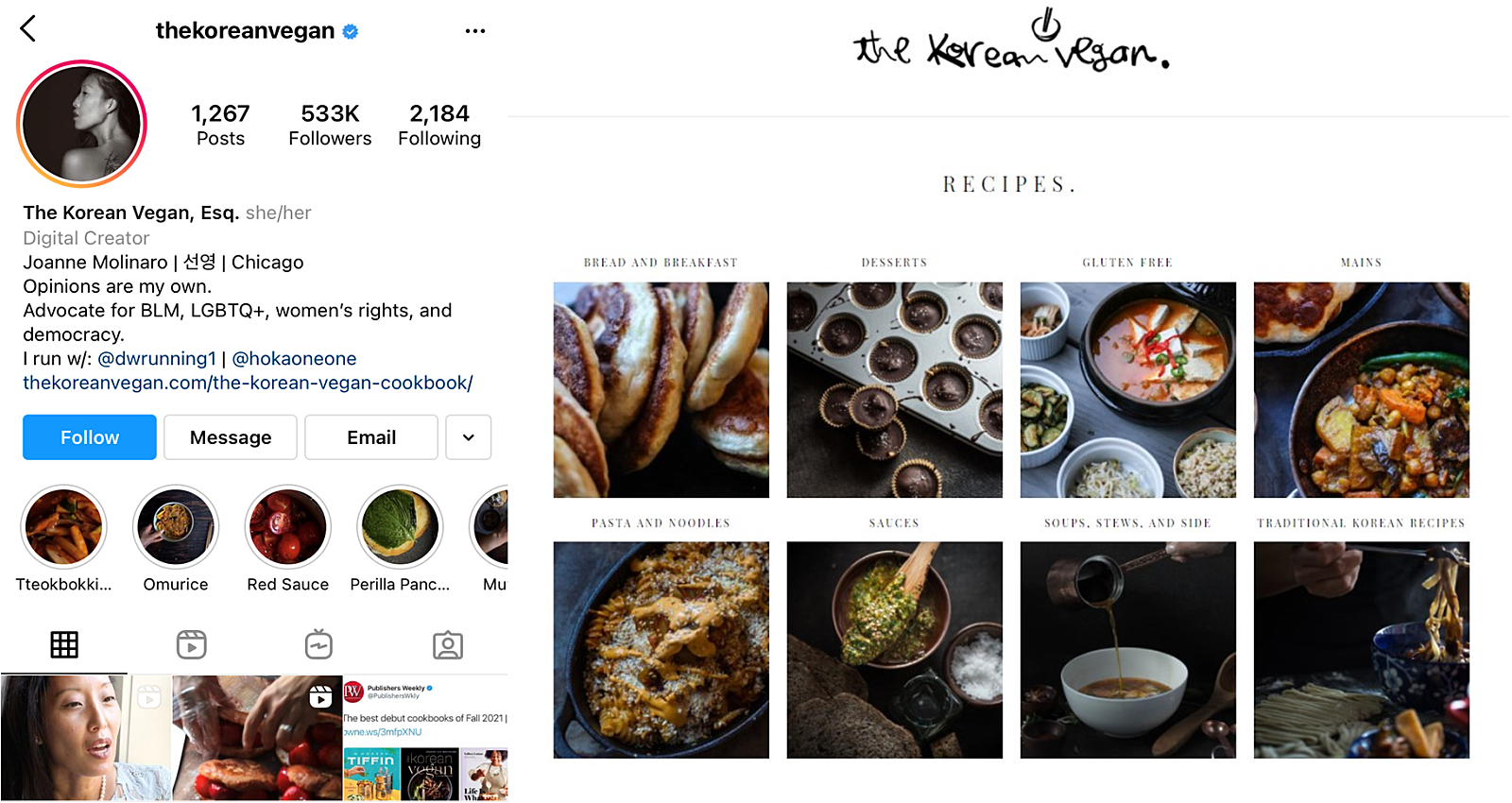Have you heard about ‘vegetarianism’? The number of vegetarians in 2008 was an estimated 150,000, but now that number has grown to 1.5-2 million people. Compared to 2008, the number has increased almost tenfold. Many companies are launching products that use only plant-based resources to target this increase in vegetarianism. The Dankook Herald investigates the rise in interest in the vegetarian diet and why people are taking the steps to live a meatless lifestyle.
There are various types of vegetarians, original and semi. The original vegetarian can be divided into four types, vegan, lacto, ovo, and lacto-ovo vegetarianism. Semi-vegetarians are divided into two types, pollo and pesco. Vegans only eat plant-based resources, with no animal products at all, while lacto-vegetarians eat plants-based food and dairy products such as milk, yoghurt and butter. Ovo-vegetarians eat plant based foods, but add eggs, and lacto-ovo vegetarians eat a vegetarian diet but include dairy products and eggs. Pollo-vegetarians avoid red meats and pork, but consume all forms of poultry, while pesco-vegetarians, eat a predominately plant-based diet, but include dairy, eggs and fish. There are also flexitarians that mostly eat food based on a vegetarian diet, but sometimes eat meat. For example, Meghan Markle, the Duchess of Sussex and wife of the Duke of Sussex Prince Harry, is flexitarian as she has cut off eating meat during weekdays.
 |
| ▲ Various types of vegetarian divided by their diet. (made by Dankook Herald) |
There are a lot of different reasons why people become vegetarian. Some make the change for their well-being, while others do it for environmental reasons or animal rights. These days, the worsening environmental crisis has pushed people to consider a vegetarian lifestyle. However, the most common reason for giving up meat is health. Doctors have increasingly warned patients that a diet high in fat or too much red meat could lead to health problems such as hypertension and diabetes. In 2015, the World Health Organization (WHO) reported that the additives in processed meat, such as cold cuts, ham or sausages could even cause cancer. People who take care of their bodies tend to pay attention to what they put in it and as a result, they are mostly choosing to adopt the vegetarian diet. Although going to the extreme and becoming a vegan by adopting a purely plant based diet could induce other health problems, adhering to a mostly vegetarian life helps our bodies get the vitamins and nutrients they need.
Vegetarianism for ethical reasons sharply criticizes the production of meat for consumption. For instance, factory farms usually breed their stock in confined, unhygienic facilities. The most popular example of this is a battery cage hen farm. Inside the cages, hens lay eggs as if they were machines. Meanwhile, the animals suffer from being kept cramped cages, exposed to high heat, and attacks of acarinosis. Other livestock like pigs or cattle also suffer a similar fate. On some farms, they are raised in small stalls with little or no room to move and on a constant feeding schedule, so that humans can later enjoy a tender and delicious meat. Against these cruel practices, more and more people are choosing to be vegetarian.
Environment problems are another reason why people are adopting a vegetarian lifestyle. In 2019, the Food and Agriculture Organization of the United Nations (FAO) reported that 70 billion livestock all over the world release greenhouse gases, and the rate accounts for about 14.5 percent of the world’s entire emissions. In addition, Jeremy Rifkin, who wrote Beyond Beef, insisted that a quarter of the world’s land area is used to breed cattle and much of the forest is being destroyed to make pastures for grazing or cultivating fodder. The rise in global climate disasters around the world has forced people to pay attention to the environmental crisis and rethink their role in creating the problem. The consumption of meat is being questioned as a result.
Lee Hyori, a famous South Korean singer, is well-known for following a pescatarian diet. In 2012, she appeared on a TV program called Healing Camp and talked about why she made the dietary change. “I’m not against meat”, she said. However, seeing significant growth in meat consumption leading to an increase in grain supply for livestock and declining animal welfare convinced her to make the change. Her diet and interest in animal rights gained more attention in 2017 after the popular reality show Hyori’s Homestay. People were inspired by her diet, when she prepared meals for guests during the program.
 |
| ▲ The Korean Vegan, a popular digital creator who introduces vegetarian meals. (Photo from The Korean Vegan Instagram and website page) |
Nowadays, many people - especially Generation MZ (Millennials and Generation Z) - follow a vegetarian lifestyle. The Instagram hashtag ‘#vegetarian’ has more than 31.9 million posts. ‘#Vegan’ has more than 115 million. According to a survey led by Univ Tomorrow, nearly one in three Generation MZers were flexitarian. Some comments reported were “I try to not eat meat at least once a week”, and “I try to choose vegan snacks over non-vegan ones”, as they looked for ways to cut down on their consumption of animal products.
According to research conducted by Shinhan Card Corporation, from 2014 to 2019, there was a huge growth in spending on plant based products. It rose to about 2 billion won, recording 163 percentage points. Across social network services, there are plenty of topics and posts associated with the plant-based lifestyle. An analysis of search words between August 2020 and January 2021, revealed that positive posts about vegetarianism increased from 59 to 72 percent. Some social media accounts and YouTube channels have begun to professionally introduce how to make and keep up with vegetarian diets.
In the past, vegetarianism was an unpopular diet, but more and more people are recognizing its benefits and positive influences on our body, the lives of animals and the environment. So, why not try it today? You may be surprised at how good you feel.
김혜선, 김주예, 정소연 dankookherald@gmail.com

![[Campus Magnifier] Let's Surf the Library!](/news/photo/202404/12496_1765_4143.jpg) [Campus Magnifier] Let's Surf the Library!
[Campus Magnifier] Let's Surf the Library!
![[Campus Magnifier] Let's Surf the Library!](/news/thumbnail/202404/12496_1765_4143_v150.jpg)





